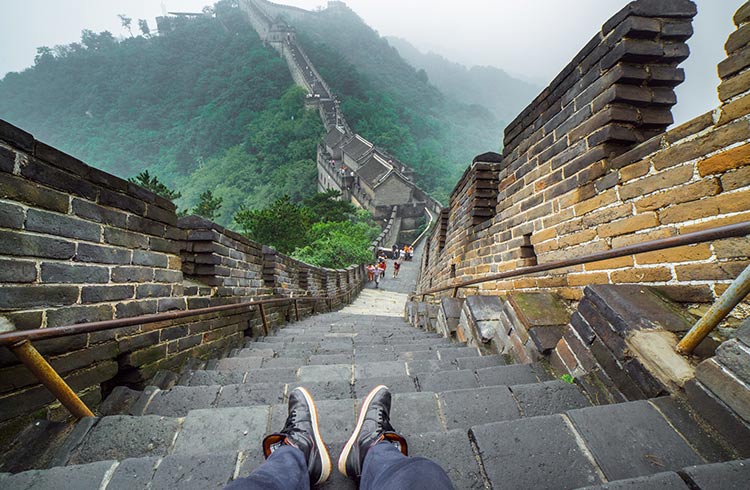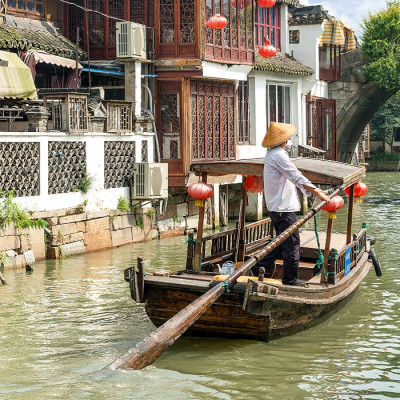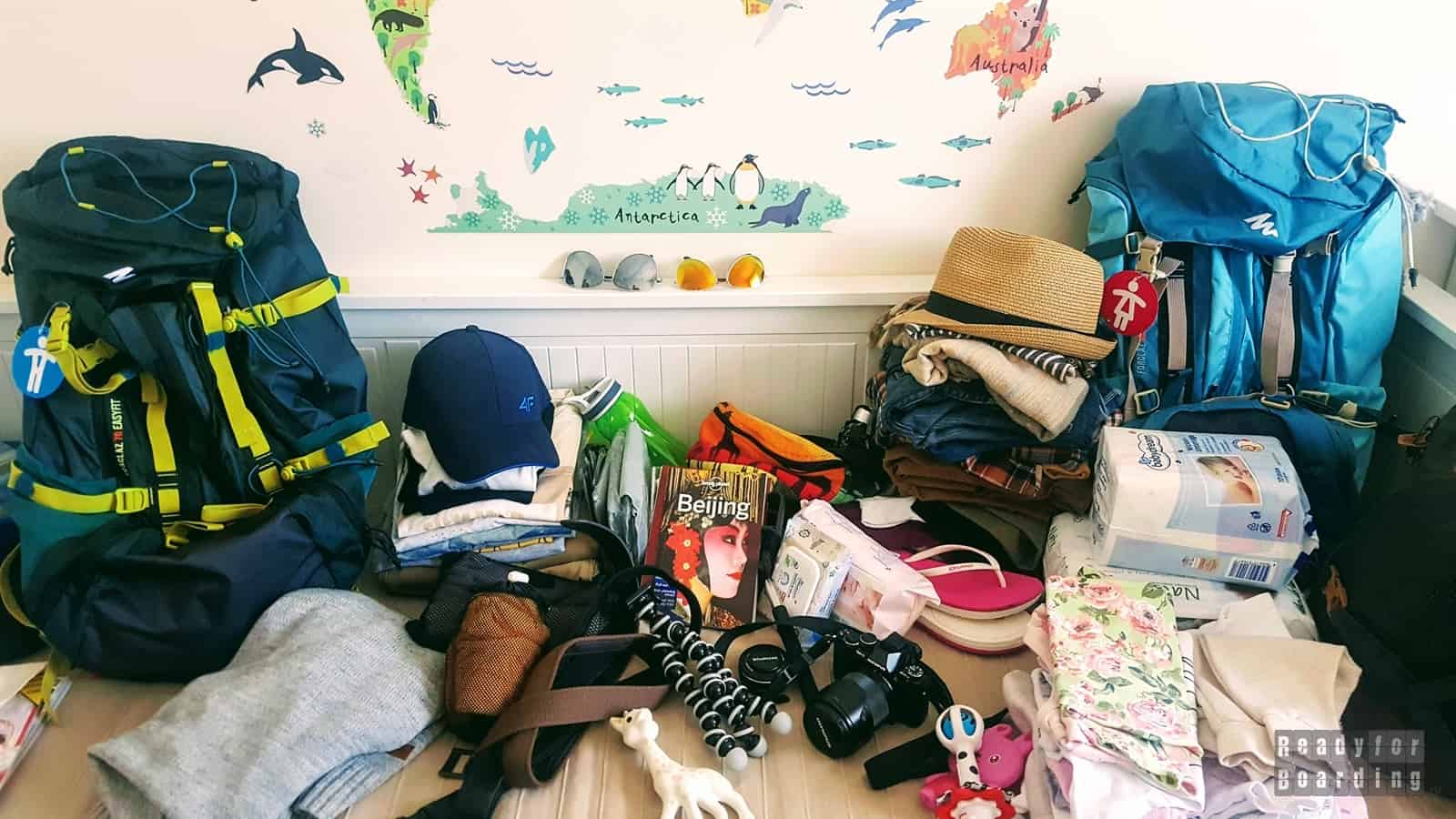Practical Tips for Canadian Tourists Exploring China

Overview of Traveling in China
As you gear up for your adventure in China, understanding the cultural nuances and necessary paperwork can significantly enhance your experience.
Cultural Etiquette
When travelling through this vibrant country, practising cultural etiquette is vital. Respect is deeply rooted in Chinese society, and a little effort in understanding their customs can go a long way. Here are a few key points to keep in mind:
- Greetings: A simple handshake is common, but a slight nod can also show respect, especially with elders.
- Dining Etiquette: It is customary to wait for the host to start eating before you dig in. Also, don’t be surprised if your host offers you food multiple times; it’s a sign of hospitality.
- Politeness: Saying “谢谢” (xièxiè) for thank you and “对不起” (duìbùqǐ) for sorry helps in building rapport with locals.
These small gestures can make your interactions more enjoyable and respectful.
Must-Have Documents
Before embarking on your journey, ensure you have all the necessary documents ready to avoid any last-minute hassles:
- Passport: Ensure it's valid for at least six months beyond your travel date.
- Visa: Most travellers will need a tourist visa. Apply for this through the nearest Chinese embassy or consulate prior to your trip.
- Travel Insurance: It's advisable to have travel insurance to cover unexpected incidents.
- Health Documentation: Keep copies of vaccination records and any relevant medical information, especially in the current global climate.
Having these documents organized and readily accessible will pave the way for a smooth travel experience in China so you can focus on enjoying its rich heritage and breathtaking landscapes.

Planning Your Trip to China
Now that you have a grasp on the cultural etiquette and necessary documents for your trip, it’s time to dive into the nitty-gritty of planning your visit to China. Two critical aspects of planning are understanding visa requirements and navigating transportation options.
Visa Requirements
Before you pack your bags, make sure to check the visa requirements for entering China. Most travellers will need to apply for a tourist visa, known as the L visa. The process may seem daunting, but it’s quite manageable. Here are the essential steps:
- Application Form: Fill out the visa application form accurately. You can find it on the official Chinese embassy website.
- Documentation: You’ll need to provide:
- A valid passport (with at least six months validity)
- A recent passport-size photo
- Proof of travel itinerary and accommodation
- Processing Time: Make sure to apply at least a month in advance, as processing can take anywhere from 4 to 10 business days.
Once you have your visa, you’re one step closer to experiencing the wonders of China!
Transportation Tips
Navigating China’s extensive transportation network can feel overwhelming, but it’s also part of the adventure. Here are some tips to make it easier:
- Public Transit: Use the subway systems in major cities like Beijing and Shanghai. They are clean, efficient, and easy to navigate with signs in English.
- Bullet Trains: These high-speed trains connect major cities and are a comfortable way to travel. Consider booking tickets in advance, especially during peak travel seasons.
- Taxis and Ride-sharing: While taxis are readily available, apps like Didi (similar to Uber) can help you avoid communication barriers. Be sure to have your destination written in Chinese for the driver to hand to.
- Walking and Biking: Explore city streets on foot or rent a bike in areas that are bike-friendly. It’s a great way to soak in local culture!
With your visa sorted and transportation strategies in place, you’re well on your way to an exciting journey through China!

Exploring Chinese Cuisine
Having secured your travel plans, it's time to embark on one of the most exciting aspects of your journey: exploring Chinese cuisine! With its rich flavours and diverse regional specialities, every meal in China is an adventure in its own right.
Popular Dishes to Try
Chinese cuisine varies dramatically by region, and you’ll want to indulge in a few standout dishes during your visit. Here are some must-try items:
- Peking Duck: This iconic dish from Beijing features crispy-skinned duck served with thin pancakes, hoisin sauce, and scallions. It’s a culinary experience that’s not to be missed!
- Dumplings: Whether steamed, boiled, or pan-fried, dumplings are a staple throughout China. Try the juicy xiaolongbao (soup dumplings) for an unforgettable flavour explosion.
- Kung Pao Chicken: A Sichuan favourite, this stir-fried dish combines chicken, peanuts, and spicy chilli peppers for a perfect blend of heat and flavour.
- Mapo Tofu: Another Sichuan dish, it features soft tofu in a spicy bean sauce, typically cooked with minced meat. Just be prepared for its fiery kick!
- Noodles: From the hand-pulled Biang Biang noodles in Xi'an to the delightful chow mein found everywhere, there’s a noodle dish to suit every taste.
Dining Etiquette
When dining out in China, being aware of local dining etiquette can enhance your experience:
- Sharing is Caring: Meals are typically served family-style, where dishes are shared among guests. Don’t be shy about reaching for the dishes!
- Chopsticks: Use chopsticks correctly; don’t stick them upright in rice, as this symbolizes death. Also, when you're finished eating, place your chopsticks on the plate rather than crossing them.
- Toasting: If you're having drinks, expect to join in a toast (干杯, gānbēi) before starting your meal. Make eye contact with those you toast—it’s a sign of respect.
- Leaving Food: It is considered polite to leave a small amount of food on your plate to show that you are well-fed.
By diving into these popular dishes and observing dining etiquette, your Chinese culinary journey will surely be a delightful highlight of your trip!
Navigating Language Barriers
As you delve deeper into your Chinese adventure, you may quickly notice that overcoming language barriers can enhance your journey significantly. While many urban areas have English speakers, knowing a few Mandarin phrases and utilizing translation tools can lead to richer interactions with locals.
Basic Mandarin Phrases
Learning some basic Mandarin phrases isn’t just practical; it’s also a respectful nod to the culture. Here’s a list of essential phrases that will come in handy:
- 你好 (nǐ hǎo): Hello
- 谢谢 (xièxiè): Thank you
- 请 (qǐng): Please
- 对不起 (duìbùqǐ): Sorry
- 我不明白 (wǒ bù míngbái): I don’t understand
- 多少钱 (duōshǎo qián): How much is this?
- 厕所在哪里? (cèsuǒ zài nǎlǐ?): Where is the bathroom?
Try practicing these phrases before your trip. Locals will appreciate your effort, and you might even get a smile or two in return!
Language Translation Apps
In addition to learning a few phrases, language translation apps can be your best friend while traveling in China. Here are some popular options to consider:
- Google Translate: Offers a robust text, voice, and camera translation feature. The offline mode can be lifesaving in areas with limited internet access.
- Pleco: A powerful dictionary app that not only translates but also helps with Chinese character recognition and pronunciation. It's fantastic for learning on the go!
- iTranslate: This app supports text and voice translation in multiple languages. The “conversational mode” allows you to have a back-and-forth dialog with someone else.
Utilizing these tools effectively can make your travels smoother and more enjoyable. By learning some basic Mandarin and leveraging technology, you’ll be able to connect with locals and create lasting memories during your time in China!

Understanding Chinese Customs
As you continue to explore the vibrant culture of China, understanding local customs is essential. It not only shows respect but also enriches your interactions with the local people. Two important facets of Chinese customs are greetings and gestures, along with gift-giving etiquette.
Greetings and Gestures
When meeting someone in China, the way you greet them can set the tone for the entire interaction. Here are some key points to consider:
- Bowing Slightly: A gentle nod or slight bow is considered a courteous way to greet someone, especially elders or superiors.
- Handshakes: A handshake is common, but may be softer than what you might expect. If you're greeting a woman, wait for her to extend her hand first.
- Addressing Properly: In general, it's advisable to use titles and last names to address someone until invited to use their first name. For example, Mr. Zhang (张先生) or Ms. Li (李女士).
Awareness of these nuances will help you forge meaningful connections with those you meet.
Gift-Giving Etiquette
Gift-giving is an integral part of Chinese culture, often associated with generosity and respect. However, there are specific dos and don’ts to keep in mind:
- Presentation Matters: Always wrap gifts beautifully. Red or gold wrapping paper is preferred, as these colors symbolize good luck.
- Avoid Certain Gifts: Clocks, umbrellas, and sharp objects should be avoided as they are associated with funerals or are seen as cutting ties.
- Reciprocation: It’s common for the recipient to refuse a gift initially, so don’t be surprised! Insist gently a couple of times before they accept to show your sincerity.
- Timing is Key: Presenting gifts during holidays, important occasions, or after a favor is seen as thoughtful.
By embracing these customs around greetings and gift-giving, you’ll navigate social situations with ease and create a positive impression during your travels across China!

Safety Tips for Canadian Tourists
As you immerse yourself in the wonders of China, it's essential to keep safety in mind. While most visits are trouble-free, being informed about potential scams and knowing emergency contact information can enhance your peace of mind.
Avoiding Scams
Like in any major tourist destination, scams can be prevalent in China. Staying vigilant can help you maintain a positive experience. Here are some tips to help you avoid common scams:
- Friendly Strangers: Be cautious if someone approaches you on the street, offering unsolicited help or guiding you to a shop. Often, there are ulterior motives, like steering you to overpriced products.
- Overcharging: If you take a taxi, ensure the meter is running. If the driver refuses, it's best to find another taxi. Additionally, consider using ride-sharing apps to avoid disputes over fares.
- Fake Tickets: When attending popular attractions, purchase your tickets directly from official sources, such as the venue website or authorized kiosks, to avoid counterfeit tickets.
- Currency Exchange: Avoid exchanging money at unofficial kiosks. Use banks or reputable exchange services instead for better rates and security.
By keeping these tips in mind, you can steer clear of potential pitfalls during your trip.
Emergency Contact Information
Being prepared in case of emergencies is crucial. Here are some important contact numbers to save on your smartphone:
- Emergency Services: Dial 110 for police assistance.
- Ambulance: Dial 120 for immediate medical help.
- Fire Department: Dial 119 for fire emergencies.
Additionally, it's wise to keep a list of your country's embassy or consulate contacts. For Canadians, the Consulate General of Canada in Shanghai can assist you if needed. Make sure to store their contact information, as well as your accommodation details, in case you find yourself in a jam. By following these safety tips and knowing the emergency contacts, you can explore China with confidence and focus on creating unforgettable memories!

Packing Essentials for China
As you prepare for your Chinese adventure, packing wisely can make a significant difference in your comfort and enjoyment. Let’s chat about some essential items to include, starting with the right clothing based on the weather and the tools you'll need to stay connected and manage your finances.
Weather-Appropriate Clothing
China's climate varies greatly depending on the region and the time of year, so it’s essential to check the weather forecast for your destinations before you pack. Here are some tips for choosing your wardrobe:
- Layer Up: If you're visiting during spring or fall, layers are your best friend. Light sweaters or jackets can keep you comfortable through temperature fluctuations.
- Comfortable Footwear: Whether you plan to explore bustling city streets or trek through scenic landscapes, sturdy and comfortable shoes are a must. Opt for sneakers or hiking boots for longer excursions.
- Seasonal Considerations:
- Summer: Lightweight, breathable clothing is necessary for the hot and humid months, especially in southern China.
- Winter: If you're traveling in winter, pack warm clothing, as temperatures can plummet, especially in the north. Don’t forget a good coat, gloves, and a hat!
By packing weather-appropriate clothing, you’ll be ready for whatever Mother Nature throws your way.
Travel Adapters and Currency
Staying connected and managing your finances are crucial during your travels, so don’t leave home without these essentials:
- Travel Adapters: China uses Type A, C, and I plugs. A universal adapter will serve you well and ensure that you can charge devices without issues.
- Power Bank: Consider a portable charger to keep your devices powered up while on the go. You’ll be glad to have one during long sightseeing days!
- Currency: The local currency is the Renminbi (RMB), commonly known as yuan. It’s wise to carry some cash, especially in rural areas or smaller shops that may not accept credit cards. ATMs are widely available in cities, and many accept international cards, but inform your bank ahead of time to avoid any issues.
By focusing on appropriate clothing and ensuring you have the necessary tech and currency, you can set the stage for a smooth and enjoyable trip. Happy packing!
Exploring Chinese Attractions
With your essentials packed, it’s time to dive into the amazing sights that China has to offer. From world-renowned landmarks to hidden gems, the country is overflowing with opportunities for exploration and adventure.
Top Tourist Destinations
Let’s start with some of the must-see attractions that draw millions of visitors each year:
- The Great Wall of China: Arguably the most iconic symbol of China, the Great Wall stretches over 13,000 miles. Consider visiting the less crowded sections like Mutianyu or Jinshanling for a more tranquil experience.
- The Forbidden City in Beijing: Step back in time as you wander through this vast palace complex, rich in history and stunning architecture. Allocate several hours to explore its many halls and exhibits.
- Terracotta Army in Xi’an: Discover this ancient army of life-sized terracotta warriors that guard the tomb of China's first emperor. It’s a breathtaking sight and offers insight into ancient Chinese burial customs.
- Li River in Guilin: Experience a scenic cruise along the Li River, complete with breathtaking landscapes of limestone karsts and charming villages.
Off-the-Beaten-Path Recommendations
If you’re looking to go beyond the typical tourist trail, here are some lesser-known attractions worth your time:
- Zhangjiajie National Forest Park: This UNESCO World Heritage site is renowned for its otherworldly rock formations. It inspired the floating mountains in the film "Avatar." Take a walk on the glass bridge for an unforgettable experience!
- Pingyao Ancient City: Step into Chinese history in this well-preserved ancient city, where you can stroll along traditional streets and visit historic sites without the crowds commonly found in larger cities.
- Dali and Lijiang in Yunnan Province: These picturesque towns offer a unique blend of scenic beauty and rich Naxi and Bai cultures, perfect for those interested in art, local cuisine, and vibrant tapestry of minority traditions.
By exploring both popular destinations and hidden gems, you’ll ensure that your trip to China is filled with wonderful experiences and memories that last a lifetime! Happy exploring!
